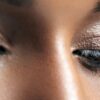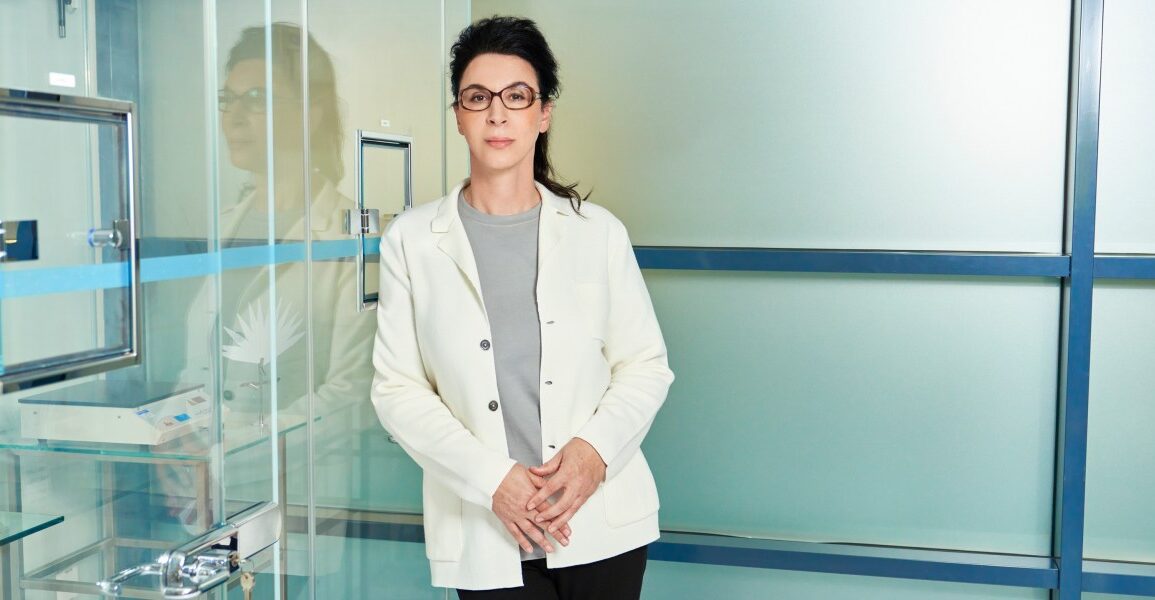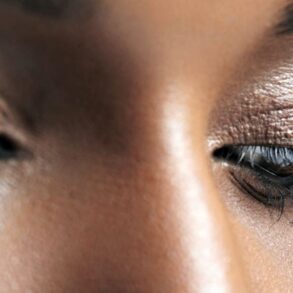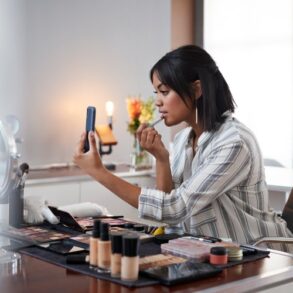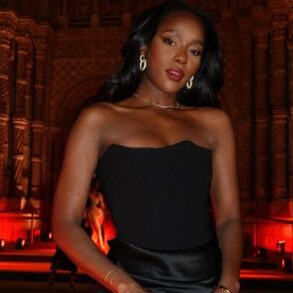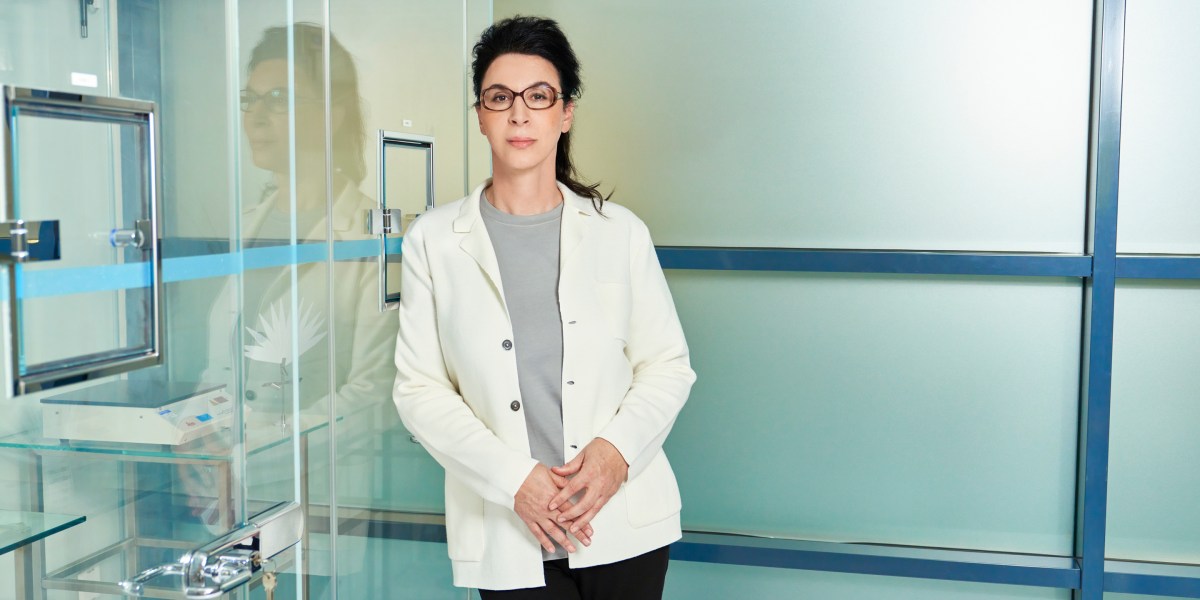
When Coty CEO Sue Nabi took the reins of the company behind Kylie Cosmetics and CoverGirl, she became the fifth CEO in five years at the struggling beauty giant. She was also the first in years to come from inside the beauty products industry, a background she credits with helping her halt Coty’s poor financial performance and return it to profitability.
Nabi is a French native and a rare transgender CEO at a large U.S. corporation. (There are no others on the Fortune 1,000 other than Nabi, but she has a peer in Martine Rothblatt, the founder and CEO of biotech company United Therapeutics.) When she became CEO, she inherited a debt-laden company riddled with problems: Coty was stretched too thin following its ill-advised acquisition in 2016 of most of Procter & Gamble’s beauty business. Moreover, the company had too small a roster of higher-end products, which typically boast better profit margins, and was a minor player in China, far behind competitors like L’Oréal and Estée Lauder.
The CEO’s predecessors had hailed from the world of consumer packaged goods like food and household products, an industry where executives are famed for brand-building. The beauty sector, however, is more about discretionary spending and physical appearance, versus the business behind, say, laundry detergent or bug spray, and previous chief executives missed out on the subtleties that define success and failure in the industry, Nabi says. “Intuition is important in our industry. I love to say that intuition is intelligence that takes a shortcut,” Nabi told Fortune from Amsterdam in a virtual interview. “I really get into the details. Show me the packaging. What does it smell like? Are you sure this is the right name for this kind of positioning? And I love to observe people.”
As Coty’s CEO, her early strategies to introduce new products faster, find new markets for old brands like CoverGirl, and license more products in China from big designers like Burberry seem to be working. She’s also turned to celebrity-owned brands. In 2021, Coty acquired a 20% stake in Kim Kardashian’s KKW Beauty (now called SKKN), two years after it took a 51% stake in sister Kylie Jenner’s brand. Both women are now reportedly seeking to buy back their respective stakes from Coty. Nabi declined to comment directly on the reports but told Fortune in an e-mail: “We have very well-established and highly successful relationships with both teams.”
Nabi’s turnaround of the nearly 120-year-old company founded in Paris as a fragrance maker is taking hold: Revenue rose 5% last fiscal year to $5.5 billion, and Coty has been profitable for two straight years after an extended period of losses. Its debt load has also fallen, and shares have nearly tripled since she took over. Those green shoots landed Nabi at No. 87 on Fortune’s 2023 Most Powerful Women in Business list.
This interview was edited and condensed for clarity.
Fortune: In a bumpy economy, beauty always seems to fare better than other consumer spending sectors. Why is the category so resilient?
It is resilient primarily because beauty makes you feel better in general and, therefore, look better, and beauty is the face you show to the world. It’s resilient because it’s in the sweet spot between health and looking better. Beauty has a playfulness and an experiential path that the health industry doesn’t, so it’s really the best of both worlds.
Beauty often thrives in down times because it becomes a comparatively affordable luxury, but consumers are pinched. Are they trading down or up in this environment?
People spend on products they believe will give them the results they’re looking for at whatever price levels. But the market is more competitive than ever, and you need to explain to people why they need to pay this pricing level through science, storytelling, superior performance, and so on. At the same time, they’re ready to do it because it is a daily luxury.
For years, beauty companies tapped celebrities like Britney Spears to launch fragrances. But that stalled as stars simply slapped their name on a perfume bottle without having anything to do with the product. Is that still the case?
I love to say that people might buy your product once because of your name, but they’ll only buy it two or more times because of the quality behind it. So it’s both. You need the consumer awareness, you need the relevancy, you need the excitement, but that’s just part of the story. The full story is about building a business that will stand the test of time.
We hear so much about how Gen Z shoppers are different. Does that hold in the beauty category?
The core things they look for are more or less the same as any older generation. They want high-quality products that deliver on their promises and speak to who they are in terms of individuality. Where there may be a difference is in how they interact with brands. They want to have one conversation versus mass conversations. They want to believe that a brand stands for inclusivity and sustainability regarding the ingredients and materials used.
With the proliferation of so many beauty brands, is there pressure on Coty to increase its pace of innovation?
Our metabolism is faster than in the past. But at the same time, our business is very profitable because we build iconic products that stand the test of time. Some of our fragrances have been in the beauty industry for up to seven decades, and such products will finance our innovation. There is a bit more newness in makeup. Makeup is where people like to play, so they will buy the latest lipstick when the effect they want is shiny, and then six months later, everything is about matte lip color. You need to follow the pace but also build cash cows.
When you became CEO in September 2020, you were the fifth in five years and had to manage through the pandemic, too. How did you go about reassuring the troops, helping them shake the sense of any crisis?
One of the first things I did was have a town hall with all employees. I did not promise them anything. What I did was talk to them about beauty. I wanted to show them that I know this industry and the rules to succeed while explaining how much brands and products need to be distinct because we live in an ocean of sameness. I explained how passionate I am about beauty. The feedback was incredible because this was the first time the CEO spoke to them not about the P&L, what we need to do next week, next quarter, and so on, but about a vision, a passion, and how intuition is essential in our business.
You were also the first Coty CEO in a long time to come from within the beauty industry rather than CPG. How did that background help?
When you are passionate about beauty and understand beauty, you can see how tiny the distance between success and failure is, and this is a level of nuance that many people from outside the industry don’t see. What’s also helped me a lot since I started 20 or 30 years ago is I go to the tiniest details, and our business is about details. I am like a camera that observes people around me.
One of your big goals is to make Coty a bigger player in China, like Estée Lauder and L’Oréal. Do you worry that U.S.-China tensions could affect that?
For everyone in this industry, China is clearly going to become one of, if not the biggest, beauty markets in the world. It’s a nation of beauty experts. You don’t have consumers in front of you; you have experts. And that pushes up the ante in terms of quality, transparency, and scientific efficiency. We are still small in China, where we get only 4% of our net revenues. There is an upside if we continue to grow there, and our fragrance category is booming in China. And if there are tensions, the downside is fairly limited.
You studied environmental engineering at university with a focus on water. How does that training still affect how you do your work?
It was hugely useful when I was at L’Oréal, but also today. I collaborate well with research and development people because they know I am an R&D person. In this company, we own some of the most interesting intellectual property in the area of [skin] health protection, which will be very important in a world that’s going to be sunnier and warmer.
You are one of the few transgender CEOs in the Fortune 1000. How do we get more transgender people into C-suites?
I love saying to people, ‘Judge me on what I do rather than who I am.’ So give a chance to anyone with ideas, passion, and willingness to create something new. That’s the only thing people should look at because the rest is private life. Understanding the left and right brains and how males and females think is also helpful in how I’ve been creating some of the most successful products worldwide.
But if some people aren’t open to who you are, they might not take the time to look at what you do. I suppose, though, that success is the best revenge.
Everyone loves success.
Get to know Nabi:
- She was born in Algeria with the name Youcef (her middle initial “Y” refers to that name) and reared and educated in France.
- Nabi founded the vegan luxury skincare brand Orveda in 2018, which Coty bought in 2021 after she became CEO.
- Nabi rose from sales representative to president of L’Oréal between 1993 and 2013. She’s credited with revitalizing Lancôme during her five years leading the brand.
This post was originally published on this site be sure to check out more of their content.

